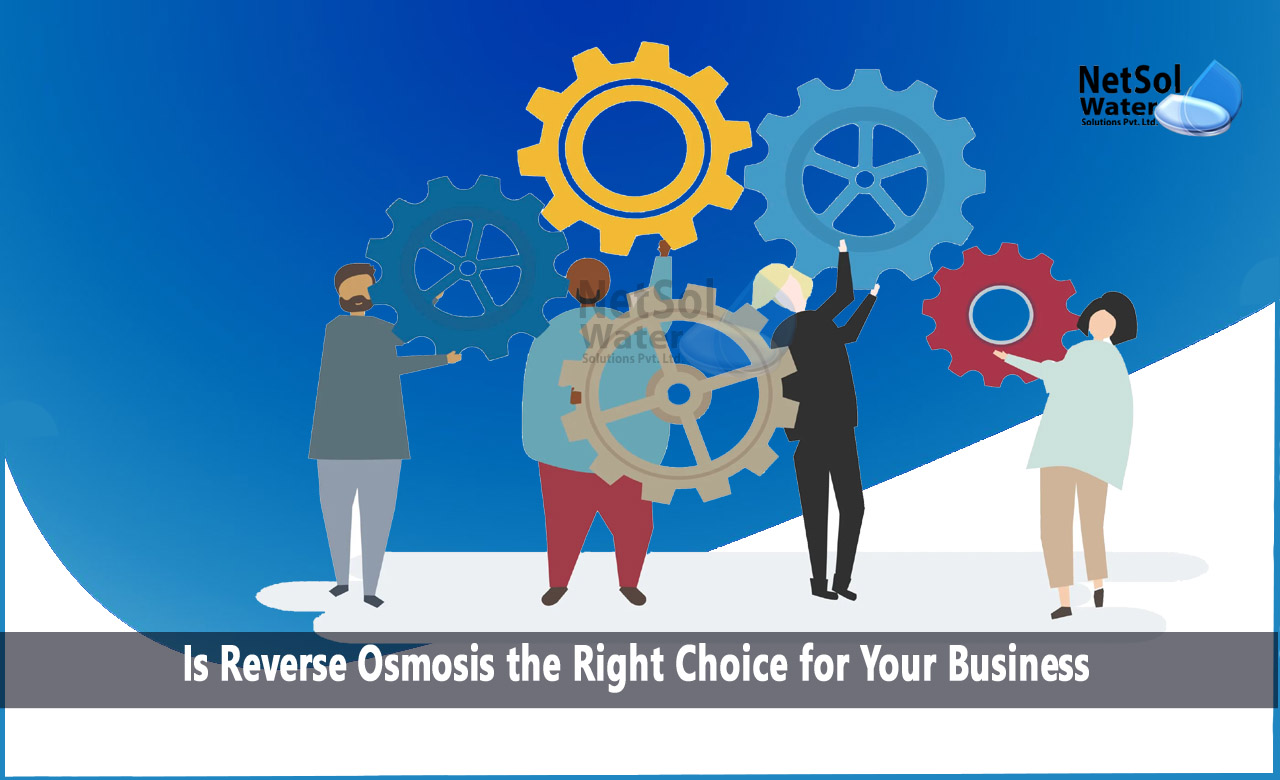Is Reverse Osmosis the Right Choice for Your Business?
When it comes to water treatment for your business, choosing the right solution is crucial. One popular option is reverse osmosis (RO), which offers effective purification by removing impurities and contaminants from water. However, determining whether reverse osmosis is the best option for your business requires careful consideration of several key factors. In this blog, we will explore important considerations that will help you assess whether reverse osmosis is the ideal choice for your specific needs.
1. Water Quality Requirements:
The first factor to consider is the quality of water required for your business operations. Reverse osmosis is known for its ability to produce high-purity water, removing a wide range of impurities such as dissolved solids, bacteria, viruses, and chemicals. If your business demands water of exceptional purity, reverse osmosis may be the best choice.
2. Water Quantity and Usage:
Assessing your water usage and quantity needs is crucial. Reverse osmosis systems have specific production capacities, and it is important to ensure that the system you choose can meet your required water demand. Consider the peak usage periods and determine if the system can provide an adequate supply during those times. Additionally, evaluate how the treated water will be utilized in your business, whether it's for industrial processes, equipment cleaning, or other applications.
3. Cost Analysis:
Implementing and operating a reverse osmosis system involves costs that should be carefully analyzed. Consider the initial investment in equipment, installation expenses, and ongoing maintenance costs, including filter replacements and system upkeep. Compare these costs with the potential benefits, such as improved equipment lifespan, energy savings, and reduced water consumption, to determine the overall cost-effectiveness of the system for your business.
4. Water Source and Composition:
Understanding the characteristics of your water source is essential in determining if reverse osmosis is the best option. Conduct a thorough water analysis to identify its composition and quality. While reverse osmosis is effective on various water sources, specific challenges, such as high levels of hardness, iron, or certain contaminants, may require additional pre-treatment or customization of the system. Assess whether your water source aligns with the capabilities of reverse osmosis.
5. System Installation and Space:
Consider the installation requirements and space availability for a reverse osmosis system. RO systems typically consist of multiple components, including pre-filters, membranes, pressure vessels, and storage tanks. Ensure you have sufficient space for the system and consider factors such as accessibility for maintenance and servicing.
6. Regulatory Compliance:
If your business operates within a regulated industry, such as pharmaceuticals or food and beverage, ensuring compliance with water quality standards and regulatory guidelines is paramount. Evaluate whether the reverse osmosis system can meet the required standards and regulations specific to your industry. Compliance is vital to avoid penalties, maintain product quality, and meet customer expectations.
7. Operational and Maintenance Considerations:
Consider the operational and maintenance aspects of a reverse osmosis system. Evaluate the frequency of filter replacements, system cleaning requirements, and ongoing monitoring. Assess whether your business has the necessary resources and expertise to manage these tasks effectively or if outsourcing maintenance would be a better option. Proper operation and maintenance are crucial for optimal system performance and longevity.
8. Environmental Impact:
Assess the environmental implications of implementing a reverse osmosis system. While it is an effective water treatment solution, reverse osmosis does generate a concentrated waste stream known as concentrate or reject water. It is important to have proper disposal or wastewater treatment measures in place to minimize the environmental impact and ensure compliance with local regulations.
Conclusion:
Choosing the best water treatment option for your business requires careful consideration of multiple factors. While reverse osmosis is a widely used and effective solution, it may not be the ideal choice for every situation. By assessing your water quality requirements, quantity and usage, conducting a cost analysis, understanding your water source composition, evaluating installation and space requirements, considering regulatory compliance, assessing operational and maintenance considerations, and understanding the environmental impact, you can determine whether reverse osmosis is the best option for your business. Consulting with water treatment experts can provide valuable insights and guidance tailored to your specific needs, helping you make an informed decision that ensures optimal water quality and operational efficiency.
Netsol Water is Greater Noida-based leading water & wastewater treatment plant manufacturer. We are industry's most demanding company based on client review and work quality. We are known as best commercial RO plant manufacturers, industrial RO plant manufacturer, sewage treatment plant manufacturer, Water Softener Plant Manufacturers and effluent treatment plant manufacturers. Apart from this 24x7 customer support is our USP. Call on +91-9650608473, or write us at enquiry@netsolwater.com for any support, inquiry or product-purchase related query.



